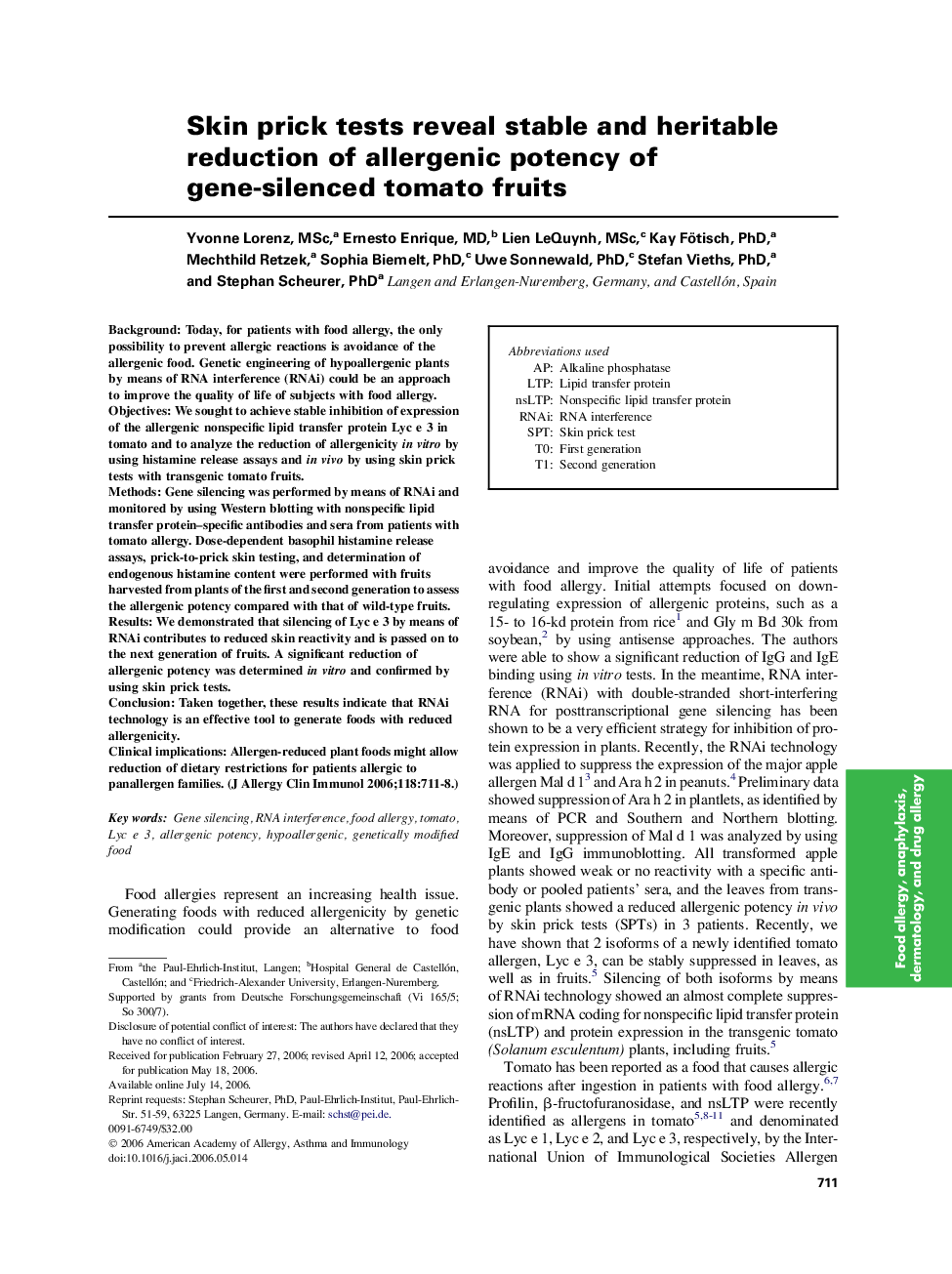| Article ID | Journal | Published Year | Pages | File Type |
|---|---|---|---|---|
| 3202905 | Journal of Allergy and Clinical Immunology | 2006 | 8 Pages |
BackgroundToday, for patients with food allergy, the only possibility to prevent allergic reactions is avoidance of the allergenic food. Genetic engineering of hypoallergenic plants by means of RNA interference (RNAi) could be an approach to improve the quality of life of subjects with food allergy.ObjectivesWe sought to achieve stable inhibition of expression of the allergenic nonspecific lipid transfer protein Lyc e 3 in tomato and to analyze the reduction of allergenicity in vitro by using histamine release assays and in vivo by using skin prick tests with transgenic tomato fruits.MethodsGene silencing was performed by means of RNAi and monitored by using Western blotting with nonspecific lipid transfer protein–specific antibodies and sera from patients with tomato allergy. Dose-dependent basophil histamine release assays, prick-to-prick skin testing, and determination of endogenous histamine content were performed with fruits harvested from plants of the first and second generation to assess the allergenic potency compared with that of wild-type fruits.ResultsWe demonstrated that silencing of Lyc e 3 by means of RNAi contributes to reduced skin reactivity and is passed on to the next generation of fruits. A significant reduction of allergenic potency was determined in vitro and confirmed by using skin prick tests.ConclusionTaken together, these results indicate that RNAi technology is an effective tool to generate foods with reduced allergenicity.Clinical implicationsAllergen-reduced plant foods might allow reduction of dietary restrictions for patients allergic to panallergen families.
